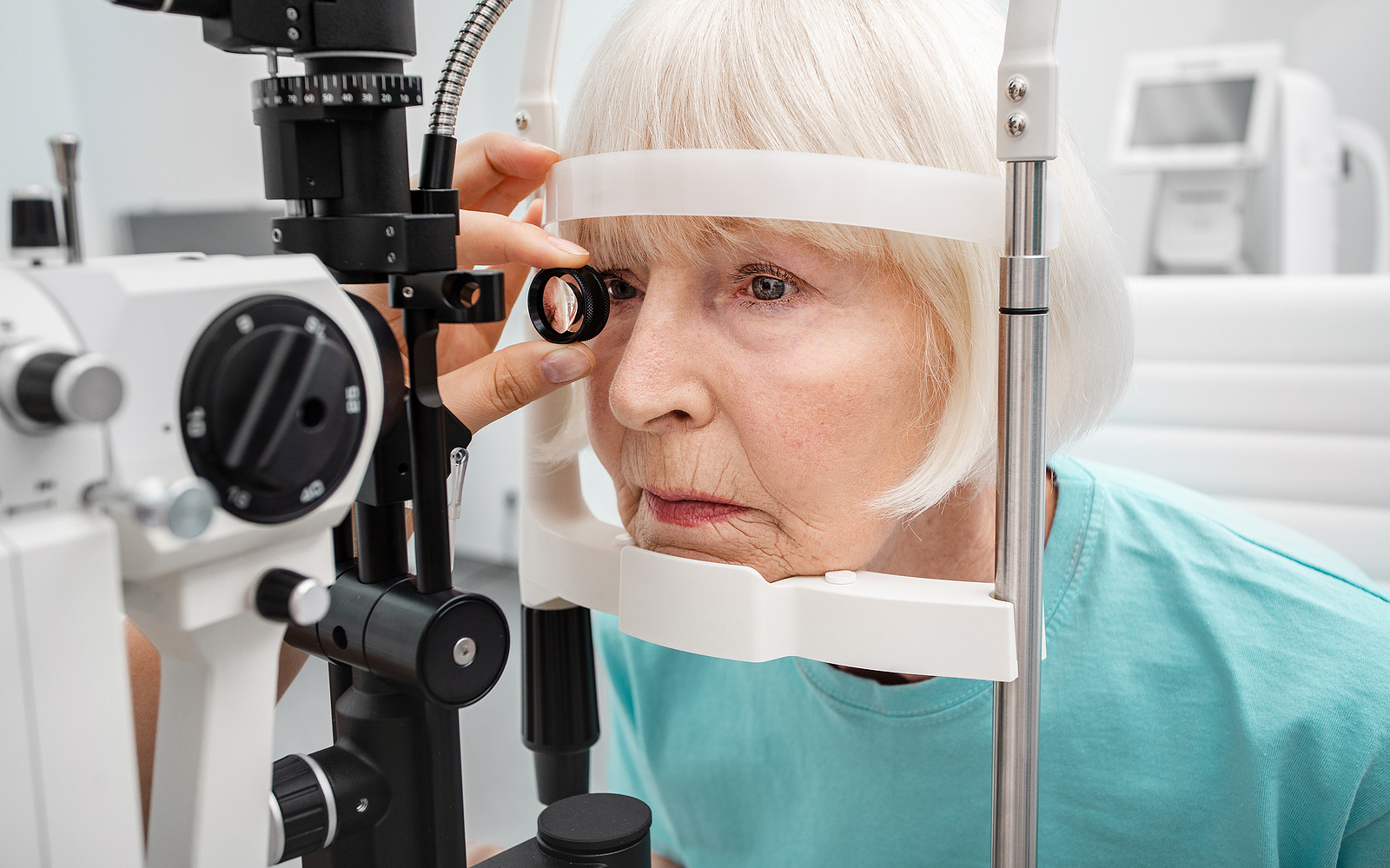How Screen Glare Affects Your Eyesight

Blue light from digital devices can be permanently harmful to your eyes. Learn how best to protect your vision.
Digital devices have fundamentally changed the way people work, play, and see. Need to clear out your inbox? Answer some emails late at night before bed. Bored during your lunch break? See what’s new on Instagram. As our personal and professional lives increasingly revolve around computers, tablets, and smartphones, it’s no secret that the average person spends a large portion of their time staring at screens.
According to a survey of RescueTime app users, the top 20 percent of smartphone users spend more than four and a half hours each day on their phones. On average, people pick up their phones 58 times per day, and most digital sessions start within three minutes of the last one. Outside of personal time, 43 percent of adults have a job that requires sustained use of a tablet or computer. With these stats in mind, it’s time to pay attention to how screen glare can affect your eyesight.
Blue Light Can Be Damaging To Your Eyes
Our eyes come in contact with many different kinds of light throughout the day, but exposure to blue light is generally the longest and most consistent. On the bright side, blue light produces more energy than most other types of visible light, making it conducive for alertness, a better mood, and higher cognitive function.
However, too much exposure to blue light can have negative effects. Since blue light produces more energy, it can also disrupt natural circadian rhythms. The brain associates blue light with being awake and conditions itself to become or remain alert in response to these visual cues. This is why people who use digital devices in bed have a harder time falling asleep than those who don’t.
Further, screen glare can cause discomfort and digital eye strain. Fatigue, dry eyes, headaches, sore or irritated eyes, and difficulty focusing are all symptoms of too much screen time. At worst, too much blue light exposure can lead to permanent vision loss. Scientists at the University of Toledo have found that blue light can irreversibly damage retinal cells, resulting in macular degeneration.
How To Protect Your Eyes From Screen Glare
Luckily, there are many simple ways to combat the damaging effects of blue light. Most smartphones and even some web browsers have a “night mode” setting that changes the color composition of the screen to make it less taxing on your eyes. Opthamalogists also recommend simply closing your eyes for a few moments throughout the day or looking off into the distance to relax your eye muscles.
You can also arrange your computer or phone screen so that it’s 20 to 26 inches away from your eyes and a little bit below eye level at all times. Glasses with yellow-tinted or anti-reflective lenses block blue light and can help reduce instances of eye strain. These same types of filters are also available for most digital devices.
It may be impossible to live a completely screen-free life, but it’s still critically important to take care of our eyes. Protecting your eyes from digital devices is necessary to prevent long-term vision loss, and is part of a healthy, balanced lifestyle. To find out how you can keep your vision crisp and clear, set up a VIP consultation at our Chandler and Mesa locations today.









